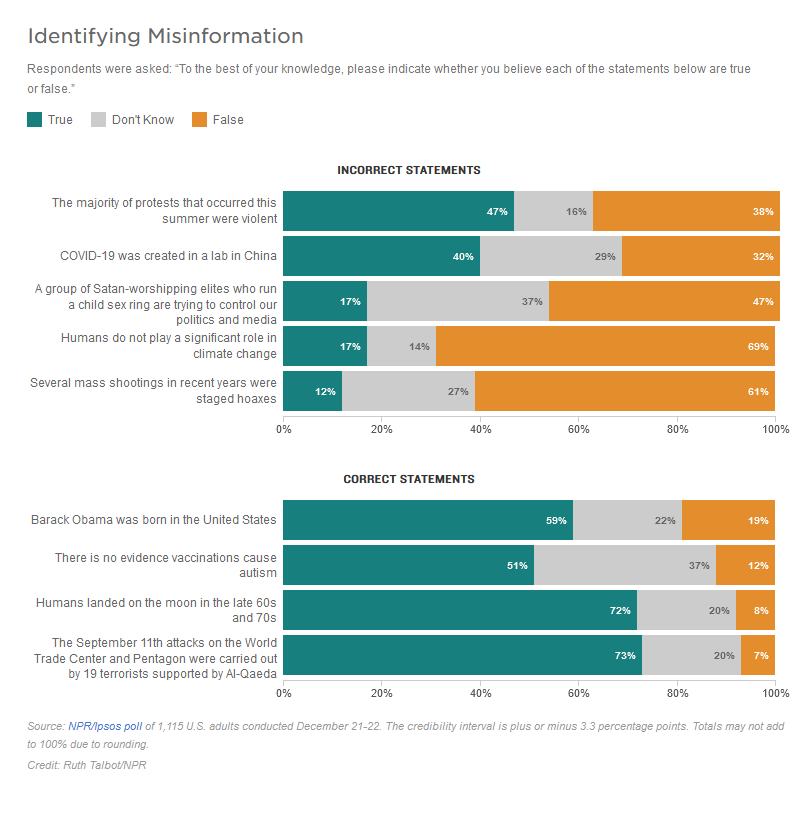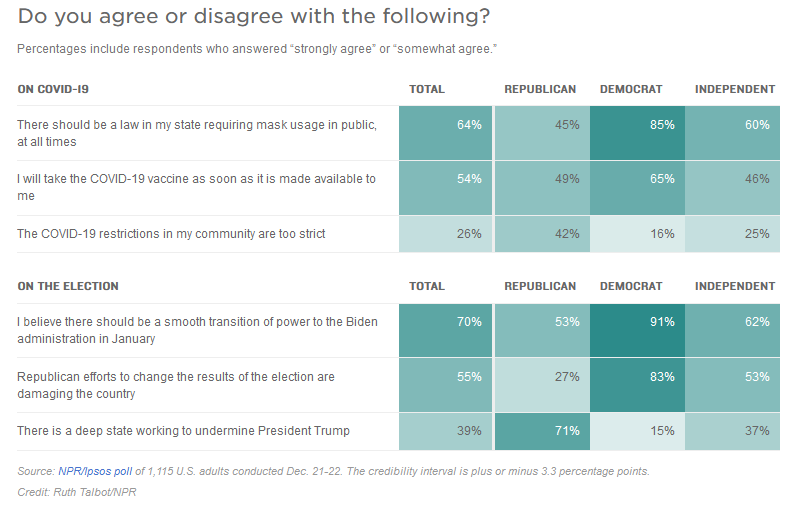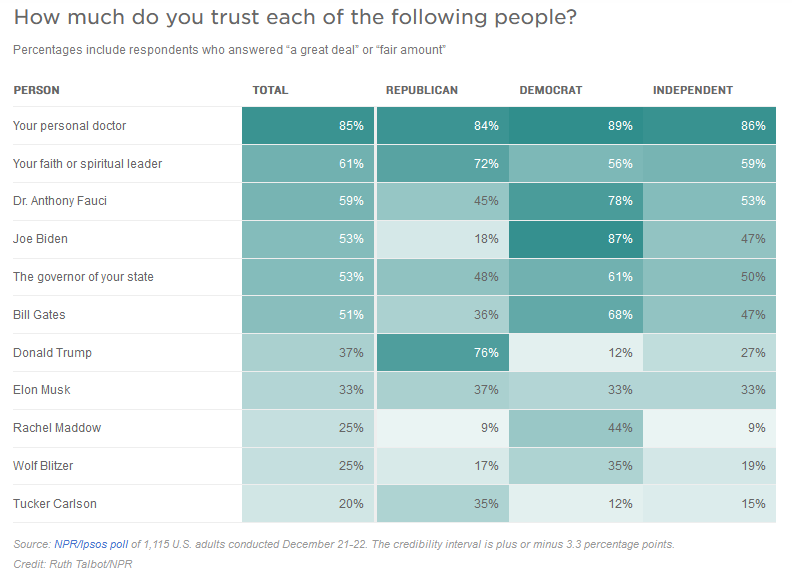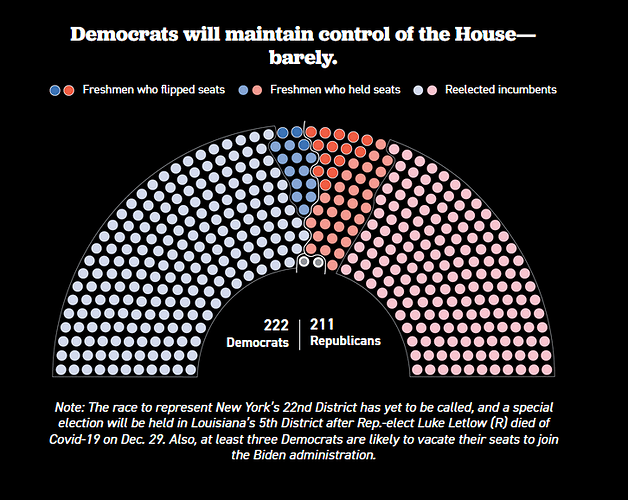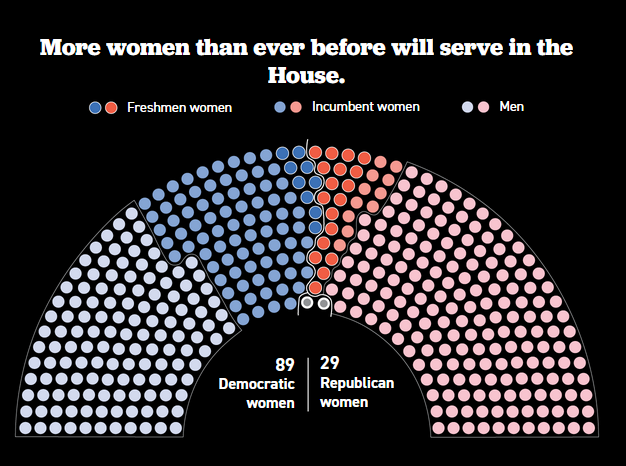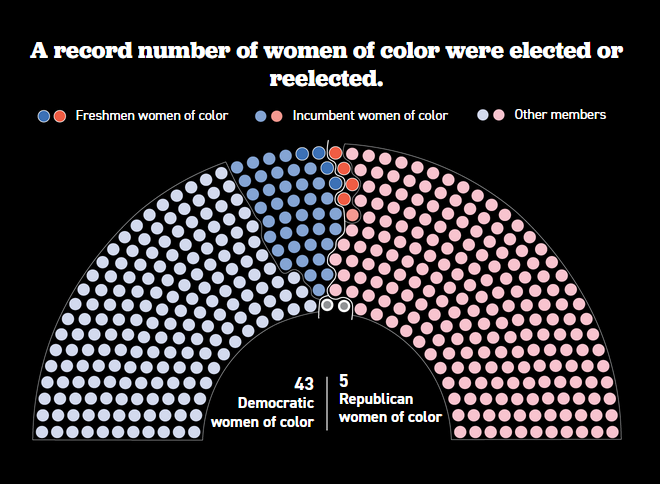Karl Rove is a Republican operative, and someone who’s been behind a lot of R power moves and got GW Bush elected. He feels the results are in, and that no fraud, or voter interference happened at all or at least to change the outcome of this election. …FWIW to the R’s.
Rove analyzes the numbers in various battleground states, and hisses at the lack of larger wins by Biden which the polls seemed to predict, stating that Biden really only lead by a 3.3 point margin instead of what various polls projected 8 point margin in front of Trump. Rove also mentions the dates various states will be certifying their results before the Electoral Votes will be finalized Dec. 14. (fingers crossed)
And leave it to a Republican to want to slam Rep Maxine Waters for her remarks about black men. Boy do they dislike her.
Well, am glad this WSJ Op-Ed piece is in print, and states that we need to move on. It should get some notice from Trumpworld.
Once his days in court are over, the president should do his part to unite the country by leading a peaceful transition and letting grievances go.
It has been an eventful, unsettling year: A deadly virus struck without warning and claimed almost a quarter-million American lives; a lockdown demolished personal routines and left us gasping for normality; a sudden, deep recession snatched newfound prosperity from many families; and now a rocketlike recovery lifts up some but leaves many on the launchpad. So why not finish out 2020 with a misforecast election as the finale?
Pundits predicted a blue tsunami of historic proportions that would carry Democrats into the White House, flip the U.S. Senate, increase Speaker Nancy Pelosi’s caucus by as many as 20 seats, and transform a basketful of red-state legislatures into blue ones just in time for redistricting in 2021. Well, the White House changed hands. But none of the rest happened.
The final RealClearPolitics average of polls predicted Joe Biden would win the popular vote by 7.2 percentage points. Nate Silver of FiveThirtyEight.com put Mr. Biden’s likely margin at 8 points. The Cook Political Report had it at “more like 9 or 10 points.” As of Wednesday, with some ballots yet to be counted in California and New York, President Trump trailed Mr. Biden by 3.3 points.
Voter turnout was up. Once everything is counted, the turnout rate will likely reach 66.5%, the highest since 1908’s barnburner between William Howard Taft and William Jennings Bryan. But the nature of this enthusiasm differed by party. The Fox News Voter Analysis found 51% of Biden supporters voted more against Mr. Trump than for the Democratic candidate, while 79% of Mr. Trump’s backers voted more for him than against Mr. Biden.
Mr. Trump also won 26% of nonwhite voters, according to NBC’s exit poll, driving commentators on the left crazy. One described these voters as “distracted.” A New York Times columnist found it “personally devastating” that many blacks and gays voted for the president. Rep. Maxine Waters (D., Calif.) warned that black male Trump voters “have a price to pay for years to come.” This is what passes for liberal tolerance.
Still, enough voters wanted change. Mr. Biden maneuvered successfully to make the election a referendum on the president’s personality and his handling of Covid. For months Mr. Trump was content to fight on that turf, trying only fitfully to contrast his agenda with his challenger’s.
Presidents win re-election only in part by heralding their achievements and outlining second-term agendas; much more depends on contrasting their opponent’s values and views with their own. That Mr. Biden’s margin of victory was much slimmer than projected can be credited partly to Mr. Trump’s emphasis in the closing days on their substantive differences—discussing fracking in Pennsylvania and toleration of socialism in Miami. But it wasn’t enough.
Mr. Trump is now pursuing legal challenges in Pennsylvania, Wisconsin, Michigan, Arizona and Nevada, and there will be an automatic recount in Georgia, given Mr. Biden’s 0.29-point lead there. Senate Majority Leader Mitch McConnell is correct that Mr. Trump is “100% within his rights” to go to court over concerns about fraud and transparency. But the president’s efforts are unlikely to move a single state from Mr. Biden’s column, and certainly they’re not enough to change the final outcome.
There are only three statewide contests in the past half-century in which recounts changed the outcome: the 1974 New Hampshire Senate race, the 2004 Washington governor’s contest, and the 2008 Minnesota Senate election. The candidates in these races were separated, respectively, by 355, 261 and 215 votes after Election Day.
These margins aren’t much like today’s. Mr. Biden led Wednesday in Wisconsin by 20,540 votes, Pennsylvania by 49,064, Michigan by 146,123, Arizona by 12,614, Nevada by 36,870 and Georgia by 14,108.
To win, Mr. Trump must prove systemic fraud, with illegal votes in the tens of thousands. There is no evidence of that so far. Unless some emerges quickly, the president’s chances in court will decline precipitously when states start certifying results, as Georgia will on Nov. 20, followed by Pennsylvania and Michigan on Nov. 23, Arizona on Nov. 30, and Wisconsin and Nevada on Dec. 1. By seating one candidate’s electors, these certifications will raise the legal bar to overturn state results and make it even more difficult for Mr. Trump to prevail before the Electoral College meets Dec. 14.
TV networks showed jubilant crowds in major cities celebrating Mr. Biden’s victory; they didn’t show the nearly equal number of people who mourned Mr. Trump’s defeat. U.S. politics remains polarized and venomous. Closing out this election will be a hard but necessary step toward restoring some unity and political equilibrium. Once his days in court are over, the president should do his part to unite the country by leading a peaceful transition and letting grievances go.
Mr. Rove helped organize the political-action committee American Crossroads and is author of “The Triumph of William McKinley” (Simon & Schuster, 2015).
